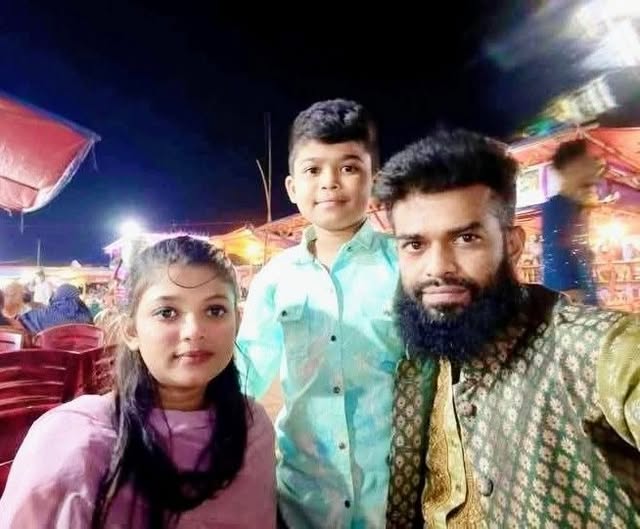What started as a brutal business dispute on the streets of Old Dhaka has now spiralled into a national political crisis, triggering a wave of public outrage, backlash, and student-led protests.
The daylight killing of 39-year-old scrap trader Lal Chand Sohag has shaken public trust and ignited fierce debate over political impunity and law enforcement integrity.
Police on Saturday confirmed that the murder, initially suspected to be the result of extortion rackets, stemmed instead from a bitter fallout between former business partners.
“It was a dispute over transactions and shop rights,” said Mohammad Jasim Uddin, Deputy Commissioner of DMP’s Lalbagh Division, at a press briefing at the DMP Media Centre. “They worked together, but tensions escalated, culminating in a gruesome killing.”
Sohag was hacked and stoned to death in broad daylight on 9 July in front of Gate No. 3 of Sir Salimullah Medical College Hospital. His sister filed a murder case the following day with Kotwali Police Station.
Horrific video footage of the killing, widely circulated on social media, ignited a national uproar.
Within 48 hours, joint raids by police and the Rapid Action Battalion (RAB) led to the arrest of six suspects. Among them were Mahmudul Hasan Mohin (41), Tarique Rahman Robin (22), Alamgir (28), Monir alias Chhota Monir (25), and Titon Gazi (32). A foreign pistol was recovered from Robin at the time of his arrest.
In response to growing public anger, Law Adviser Asif Nazrul announced that the case would be moved to a Speedy Trial Tribunal under Section 10 of the 2002 Act. “Justice will be swift and exemplary,” he posted on social media, declaring the case a state priority.
Home Affairs Adviser Jahangir Alam Chowdhury echoed that commitment, stating that all primary suspects had been apprehended. “This is a deeply tragic event—unacceptable in any civilised society,” he said. “But the swift response by law enforcement should not go unnoticed.”
Despite these assurances, the case has quickly taken on political overtones as many of the accused are linked with BNP politics. The victim himself had been involved with BNP politics earlier.
Leaders of BNP-aligned organisations– Jubo Dal, Chhatra Dal, and Swechchhasebak Dal– have strongly condemned the murder, accusing the government of shielding the actual perpetrators. At a press conference on Saturday, they alleged that individuals clearly seen in CCTV footage remained at large.
The BNP also announced the expulsion of four members reportedly involved in the incident. However, senior party leaders claimed the government was using the case to discredit them. “This is not about justice,” one leader said. “This is about political scoring.”
Adding to the pressure, students from Jagannath and Jahangirnagar universities took to the streets, comparing the incident to the 2012 Biswajit Das murder and demanding both justice and stronger public safety. Protest marches in Old Dhaka’s Roy Shaheb Bazar, Tanti Bazar, and Nayabazar echoed with chants calling for the immediate trial of the killers.
Many student processions also targeted Tarique Rahman, the acting chairman of BNP, with slogans accusing him of harbouring criminals and protecting party cadres involved in violent crimes.
In some places Jammat and NCP also chanted slogans against Tarique Rahman.


